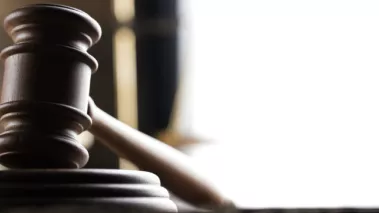Table of Contents
In blow to free speech, Fourth Circuit reinstates lawsuit against University of Mary Washington

This morning, in a deeply disappointing ruling for students’ free speech rights, the U.S. Court of Appeals for the Fourth Circuit reinstated several claims against the University of Mary Washington that had previously been dismissed by a district court. The alarming upshot of the ruling is its suggestion that Title IX may sometimes require colleges to censor or block all students’ access to certain internet sites or services based solely on anonymous statements made in an online forum that the university does not control, by people who may not be on campus, or even affiliated with the university at all.
The case, Feminist Majority Foundation v. University of Mary Washington, stems from a series of events that roiled UMW’s campus back in 2015. At the time, members of the UMW student group Feminists United on Campus (a local affiliate of Feminist Majority Foundation) were speaking out about several issues on campus, including the student senate’s decision to authorize fraternities as well as a bawdy rugby chant that several members of UMW’s men’s rugby team were recorded singing at an off-campus party. Following their advocacy, FUC members found themselves the targets of online hostility, particularly on a now-defunct platform called Yik Yak that allowed users within a certain geographic radius to post anonymous messages. FUC complained about this repeatedly to the UMW administration, and after they found UMW’s response to their complaints to be lacking, they first filed a complaint with the U.S. Department of Education’s Office for Civil Rights and then, ultimately, a federal lawsuit.
The lawsuit claims that UMW discriminated against the plaintiffs, in violation of Title IX, by responding with deliberate indifference to their claims of peer harassment, and by allowing UMW students to retaliate against the plaintiffs for filing an OCR complaint. The suit also alleges that former UMW president Richard Hurley retaliated against the plaintiffs by publicly defending the university against their allegations of discrimination.
In September 2017, a federal district court in Virginia dismissed their suit, holding that “the Title IX discrimination claim fails because the harassment took place in a context over which UMW had limited, if any, control — anonymous postings on Yik Yak,” and that “[w]hile UMW did not take the specific action requested by the plaintiffs, Title IX does not require funding recipients to meet the particular remedial demands of its students.” The court also held that Hurley’s public letter defending UMW against the allegations did not constitute retaliation.
The plaintiffs appealed to the Fourth Circuit, and this morning, in an opinion that was shockingly dismissive of the profound implications of this case for free speech, that court reinstated several of their claims. The bulk of the court’s decision turned on whether UMW “exercise[d] substantial control over both the harasser and the context in which the known harassment occurs,” as required to establish Title IX liability under the Supreme Court’s 1999 decision in Davis v. Monroe County Board of Education.
In a ruling that has far-reaching implications for universities’ obligation to monitor and address the off-campus, online speech of its students, the court held that because UMW had the “technical capacity to control the means by which the harassing and threatening messages were transmitted” (that is, the ability to block campus network access to Yik Yak altogether) and because they could have taken other actions (such as “mandatory assemblies” or “anti-sexual harassment training”) to make clear that sexual harassment by its student body would not be tolerated,” the plaintiffs had sufficiently alleged that UMW had substantial control and thus could be liable for the harassment.
Unfortunately, the opinion does not address one of the most significant issues in the case, which is whether the speech in question even rose to the level of unprotected harassment or true threats in the first place. FIRE strongly believes it did not, and we submitted an amici curiae brief — joined by the Cato Institute, the National Coalition Against Censorship, and law professor (and former ACLU president) Nadine Strossen — on that point, arguing that “[t]his case turns exclusively on the university’s response to offensive but constitutionally protected speech.” Ultimately, it is almost impossible to conceive of this case being resolved without addressing this enormous elephant in the room; if the speech was constitutionally protected, and was not harassment, then the question of substantial control is irrelevant.
There is one significant bright spot in the opinion, however: The Fourth Circuit upheld the lower court’s dismissal of the retaliation claim based on then-president Hurley’s defense of UMW against discrimination allegations. Had the court reinstated this claim as well, it would have been another huge blow to free speech. As I wrote in an editorial when plaintiffs first made this retaliation argument in their OCR complaint, “If simply speaking up in defense of oneself or others on matters pertaining to sex discrimination constitutes retaliation under Title IX, the law amounts to nothing less than a gag order on students, faculty and administrators.” Thankfully, the Fourth Circuit recognized this, writing that “[p]ut simply, an educational institution and its administrators are entitled to defend against accusations against discrimination,” and that “a person who charges an institution and its administrators with discrimination—particularly in a highly publicized way—should reasonably expect that the institution and its administrators may deny the claim in a publicized response.” The court did, however, reinstate a portion of plaintiffs’ retaliation claim that was based on the argument that UMW had not done enough to protect the plaintiffs from additional peer harassment that ensued following their filing of an OCR complaint.
It is important to understand that this ruling came in an early stage of the case — a threshold stage at which a court is bound to accept the allegations in the plaintiffs’ complaint as true and decide whether, if everything the plaintiffs say is true, they have a viable legal claim. The case is by no means over, and an appeal of this ruling to the Supreme Court is possible as well. Still, given the relatively contemporary fact pattern it addresses, the Fourth Circuit’s decision here is likely to have an immediate and powerful impact on the way universities think about students’ online speech — and not in a good way. As Judge G. Steven Agee wrote in a powerful dissenting opinion in this case:
Make no mistake, the majority’s novel and unsupported decision will have a profound effect, particularly on institutions of higher education, until the Supreme Court reaffirms that Davis means what it says. Institutions, like the University, will be compelled to venture into an ethereal world of non-university forums at great cost and significant liability, in order to avoid the Catch-22 Title IX liability the majority now proclaims. The University should not hesitate to seek further review.
We agree with Judge Agee and will have more on this ruling and its implications in the days and weeks to come.
Recent Articles
FIRE’s award-winning Newsdesk covers the free speech news you need to stay informed.

Supreme Court case upholding age-verification for online adult content newly references 'partially protected speech,' gives it lesser First Amendment scrutiny

All that glitters is not gold: A brief history of efforts to rebrand social media censorship

Missouri governor signs legislation securing students’ rights to freely associate on campus
